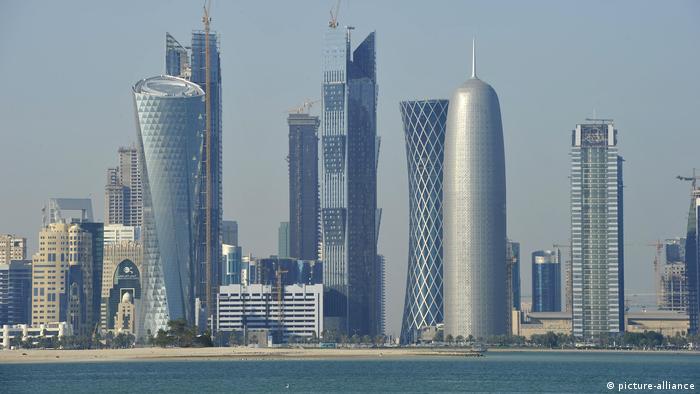The Pope to visit in the United Arab Emirates, which are considered to be religiously tolerant. However, against dissidents of the state hard, says Wenzel Michalski of Human Rights Watch in the DW-Interview.

DW: Mr. Michalski, the United Arab Emirates have a reputation of just-in religious terms a very tolerant state. The religions are coming together well, it is, and the interaction of the ethnic groups that live over peacefully. The progress sounds, one would think.
Wenzel Michalski: Yes, that is a reputation that you have developed. But this is not correct, because of this reputation you to to wear wrong. The United Arab Emirates are not a tolerant state. There are massive violations of human rights – especially freedom of expression and the right to freedom of Assembly. Anyone who takes these rights, runs the risk to end up in prison. There are two prominent human rights defenders who are sentenced to now has been ten years in prison: one, because he has criticized Egypt, and the other because he has criticised the General human rights situation within the country. The state is taking a very hard and brutal against opposition members and critics.
Human Rights Watch also criticized a law from the year 2014, on the basis of which it would be possible, legally, to proceed against critics and dissidents.
Yes, the fear of the state, criticism must be very strong, very large, they will even come to the idea of someone, the criticism of the policy or the handling of the people expresses the right situation, denounced as terrorists, and to condemn accordingly harsh sentences.
It seems, as there is in more and more countries of the Region aware of this fuzzy laws, on the basis of critics as “terrorists,” defaming.
This is unfortunately a Trend in many countries in the Middle East, but also, and increasingly, in Southeast Asia, in Russia and in China, of course, where exactly such similar clauses and provisions are used to silence any criticism in the Bud.

Wenzel Michalski, Germany Director of Human Rights Watch
Do you think that protest movements can in this way in the long term off?
No, not permanently. Because the more a country by its government under pressure, the more unstable it is. The stronger the urge is to protest, however, until the situation is made worse at some point so that people can go on the road, even though you know that you arrested, maybe even killed and tortured. But if the pressure is so strong, then it comes again and again to rebellions and revolutions, such as, for example, during the Arab spring. In response, this law has now been tightening introduced. But that could be sometime as a shot that starts to the rear.

On the surface, modern Skyline of Doha
Human Rights Watch has documented attacks by the war coalition in Yemen, the United Arab Emirates. Among the attacks, some that could possibly be considered as war crimes. What is it exactly?
There are a plethora of attacks on civilian targets such as hospitals, schools, factories, residential places, markets. There’s civilians there were attacks in a monstrous way, the target of the missiles. The number of deaths – children, women, men who are not soldiers – was so large that one can assume that there could be a war crime. And we demand that these incidents which may be war crime, to be investigated. In addition, we want the Pope speaks in all clarity.
Human Rights Watch also addresses the Situation of guest workers in the UAE, especially from the poorer countries of Southeast Asia. What are the circumstances of life?
The Situation for migrant workers in the United Arab Emirates is in General very bad, and also because no one is held accountable. Or because there are no consequences if an employer exceeds the limits and, for example, the people no longer paid, or bullied. A big Problem is the location of the house employees – usually the women are, for example, from the Philippines. You will be tortured to the part. You don’t ever have the opportunity to seek other employment or to return to their homeland. They live in almost slave-like conditions. You are not free, you way can. Because termination is viewed basically as a kind of escape, will be punished.
These women are exposed to, according to Human Rights Watch, sexual abuse.
Yes, you can no longer defend themselves, because they are not allowed to leave the house at all. I myself have seen a scene in a different country – the UAE – in the Philippine Embassy. There’s 150 women who jumped out of the Windows in the Kitchen or while shopping ran away, and then in the Philippine Embassy shelter got. The were not allowed to leave the country. So you camped in the Embassy. Similar situations also exist in the United Arab Emirates. There is no regular legal way for these Migrant workers to fight back.
Wenzel Michalski, Germany Director of human rights organisation Human Rights Watch.
The conversation Kersten Knipp.
Watch the Video 01:55 live Now 01:55 Min. Share
Francis in Abu Dhabi
Send Facebook Twitter google+ Tumblr VZ Mr. Wong Xing Newsvine Digg
Permalink https://p.dw.com/p/3Ci5T